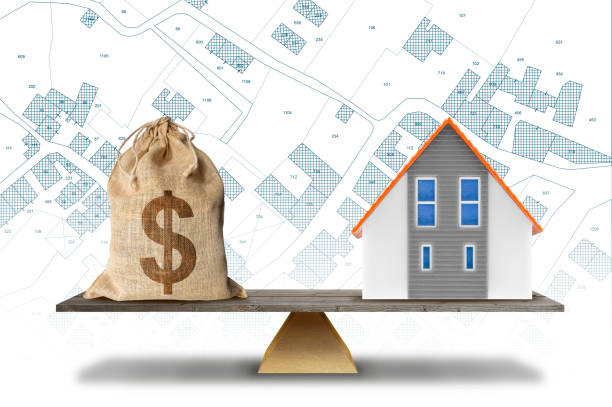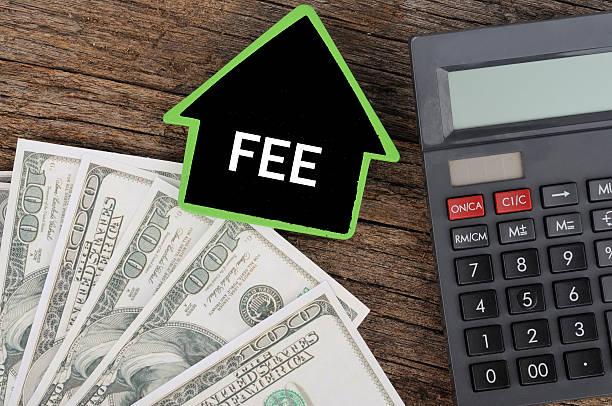For many homeowners, the monthly or annual Homeowners Association (HOA) dues can feel like an unwelcome expense. You might find yourself asking, “Is there a way to get out of paying HOA dues?” While completely avoiding HOA dues is usually not an option, there are some strategies that may help you reduce or delay payments. In this article, we’ll explore some of these techniques, discuss how to deal with dues, and examine the consequences that can arise if dues are not paid.
 As a homeowner, you have the right to request these documents. Reviewing them can give you insights into potential areas where costs could be cut.
As a homeowner, you have the right to request these documents. Reviewing them can give you insights into potential areas where costs could be cut.
 The HOA could take legal action against you, resulting in legal fees and potential garnishment of wages. In the worst-case scenario, a lien could be placed on your home, putting your property at risk.
The HOA could take legal action against you, resulting in legal fees and potential garnishment of wages. In the worst-case scenario, a lien could be placed on your home, putting your property at risk.
Ask to See the HOA Budget
Before you think about reducing costs, it’s essential to understand where the money is going. HOA boards are usually required to maintain a budget and financial statements. As a homeowner, you have the right to request these documents. Reviewing them can give you insights into potential areas where costs could be cut.
As a homeowner, you have the right to request these documents. Reviewing them can give you insights into potential areas where costs could be cut.
Join the HOA Board
If you’re not happy with how your HOA dues are being utilized, one effective way to instigate change is by joining the HOA board. Being a board member gives you a voice in the financial decisions that affect your community. You could use this position to suggest cost-saving measures or to vote against initiatives that would raise dues.Look at All of the HOA’s Contracts
Another option is to request copies of contracts the HOA has with vendors. Are there long-standing agreements with service providers that could be renegotiated for a better rate? Perhaps switching vendors could result in substantial savings. All of these possibilities could be explored if you have access to the contracts.Cut Landscaping Costs
One of the significant expenses for many HOAs is landscaping. Simple changes like reducing the frequency of lawn mowing or switching to drought-resistant plants could result in significant savings. Propose these ideas at your next HOA meeting and see if they gain traction.How to Deal with HOA Dues
While it might be challenging to entirely escape paying HOA dues, there are ways to manage them effectively. One approach is to examine if reserve funds are higher than necessary. Reducing reserve funds—while risky—can temporarily lower dues. Another strategy is to defer non-essential repairs. While not ideal for long-term property value, it can be a short-term solution. Lastly, scrutinizing contracts with vendors can sometimes lead to reduced service costs. Any savings can be passed onto residents in the form of lower dues.What Happens If You Don’t Pay HOA Dues?
Failing to pay your HOA dues is not without consequences. Your community might experience cutbacks in maintenance and repairs, which can lower property values. The HOA could take legal action against you, resulting in legal fees and potential garnishment of wages. In the worst-case scenario, a lien could be placed on your home, putting your property at risk.
The HOA could take legal action against you, resulting in legal fees and potential garnishment of wages. In the worst-case scenario, a lien could be placed on your home, putting your property at risk.
What Collection Methods HOA Can Use to Recover Fees?
If you’re delinquent on your HOA dues, be prepared for a range of collection methods. The initial step usually involves sending you a demand notice. If this doesn’t result in payment, you could lose access to community amenities like the gym or swimming pool. The HOA could go so far as to file a lawsuit or make your renters pay your dues. And in extreme cases, a lien could be placed on your home, which can severely affect your credit and even result in foreclosure.Sending You a Demand Notice
This is often the first step the HOA will take. It’s an official notification that you’re behind on your payments.Taking Away Your Privileges
Unpaid dues can lead to a suspension of your right to use common areas or amenities.Filing a Lawsuit
In extreme cases, the HOA may take legal action to recover unpaid fees. This is a costly option for both sides and is generally considered a last resort.Making Your Renters Pay
If you’re renting out your property, the HOA can sometimes require your tenants to pay your delinquent dues directly to them, bypassing you altogether.Placing A Lien On Your Home
This is a serious measure that not only damages your credit score but could eventually result in the foreclosure of your home. In conclusion, while completely avoiding HOA dues is not practical or recommended, there are ways to manage or potentially reduce these fees. It requires engagement, transparency, and sometimes, a seat at the table where decisions are made. Remember, failing to pay these fees comes with a hefty set of repercussions, some of which can be quite severe. Always be aware of your responsibilities and rights as a homeowner in a managed community. Disclaimer: This article is meant for informational purposes only and should not be taken as legal or financial advice. Always consult with professionals for your specific situation. This article is brought to you by Heywood Community Management, located in Phoenix, AZ. We offer HOA Management, Condo Association Management, and Financial Management services for Homeowners Associations.Heywood Community Management specializes in homeowners' association (HOA) management in Arizona and surrounding areas such as Gilbert, Chandler, Tempe, Mesa, Queen Creek, Scottsdale, Phoenix, and more. Heywood HOA Management has actively been a part of Arizona's Real Estate market since 1933. With a single focus on community association management, Heywood Community Management is dedicating its resources to raising the community management standard of quality.
HOA business tips, intriguing topics, and freebies straight to your inbox.
Join the subscribers who get our content first.
No charge. Unsubscribe at anytime.

